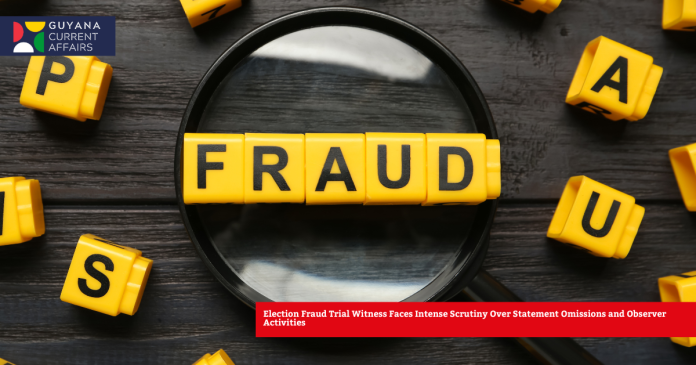The ongoing trial into allegations of electoral fraud during Guyana’s 2020 General and Regional Elections has taken a dramatic turn as a key witness, Rosalinda Rasul, faced rigorous cross-examination. Rasul, who served as a local observer for the American Chamber of Commerce of Guyana (AmCham), was questioned about discrepancies in her statements and her activities during the election process.
During the trial, defense attorney Nigel Hughes pressed Rasul about amendments and omissions in her statement to the police, which was initially provided to the Commission of Inquiry (COI) into the elections. Rasul acknowledged that her statement had been altered before it was submitted to law enforcement.
Rasul’s testimony also delved into her experiences at the Ashmins building, where she was present during the tabulation of votes for Region Four. She maintained that she did not believe a bomb threat was genuine, viewing it as a tactic by the A Partnership for National Unity + Alliance for Change (APNU+AFC) to remove election observers and disrupt the process.
The trial centers around allegations that several former Guyana Elections Commission (GECOM) officials and APNU+AFC figures conspired to manipulate election results. The defendants, including former GECOM Returning Officer Clairmont Mingo and former Chief Elections Officer Keith Lowenfield, face charges related to declaring false results for Region Four, which would have given the APNU+AFC coalition an election victory.
Rasul’s testimony is crucial as it highlights the contentious nature of the election process, including attempts to delay vote tabulation and the issuance of a court order. The trial has been marked by delays and legal challenges, underscoring the complexity and sensitivity of electoral fraud cases.
As the trial continues, the court is expected to visit key locations related to the case, including the Ashmins building and GECOM headquarters, to gather more evidence. The prosecution plans to call numerous witnesses to support its claims, emphasizing the importance of transparency and accountability in electoral processes.


